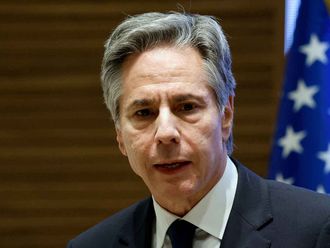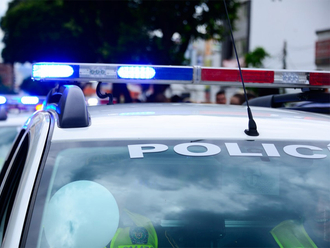Kiev: The first European drones landed Monday in Ukraine and a top US envoy flew to Kiev in an urgent bid to bolster its crumbling truce with pro-Russian fighters.
Ukraine also announced the arrival of German winter supplies for towns and cities devastated by nearly six months of warfare that has killed nearly 3,300 people across the separatist east.
The Western rush in support of Ukraine came one month into a ceasefire that has done little to resolve Europe’s worst crisis in decades and still threatens to break the ex-Soviet country apart.
Hundreds of guerrillas — supported by tanks and missile systems — have been tightening the noose around an airport near their stronghold city of Donetsk whose capture is vital to their independence drive.
“They staged another unsuccessful attempt to take the airport overnight,” National Security and Defence Council spokesman Andriy Lysenko told reporters.
He said another soldier was killed and 13 wounded in the past day of fighting. Ukraine has reported the death of 81 government troops and civilians since the warring sides signed the Moscow-backed truce on September 5.
The rebels do not report their own losses and Ukraine’s daily claims of heavy casualties in their ranks have been impossible to confirm.
The first two Austrian unarmed aerial surveillance vehicles clearing customs in Ukraine will be part of a four-drone contingent deployed by European monitors along the Russian border and across the war zone.
Nato believes that Russia has withdrawn a “significant” number of the special forces it allegedly snuck into eastern Ukraine to help insurgents set up their own state.
Moscow denies involvement and rejects trying to seize its neighbour’s most economically important industrial region in retaliation for the February ouster of a Russian-backed president.
But thousands of Kremlin troops still deployed along its border have unnerved both Kiev and ex-Soviet satellite nations that are watching Russian President Vladimir Putin with growing mistrust.
The craft will be operated by the Organisation for Security and Cooperation in Europe — a Cold War-era security group that backed the September 5 truce deal and is charged with making sure it works.
Paris said on Sunday that France and Germany also intend to send drones to Ukraine in the coming days.
An OSCE spokesman said it was still unclear if those unmanned vehicles would be part of the organisation’s mission or flying separately.
“We will remain an unarmed civilian mission,” OSCE spokesman Michael Bociurkiw stressed.
The arrival on Monday of US Assistant Secretary of State Victoria Nuland — a hate figure in Moscow for her open backing of Kiev’s Western aspirations — comes as Ukrainian President Petro Poroshenko faces tough general elections at the end of the month.
The peace pact and his subsequent offer of partial self-rule for the five million people believed to be living in rebel-run regions have been brushed off by insurgents as too limited.
The separatists now intend to keep Kiev from opening eastern ballot stations for October 26 parliamentary elections and to hold their own independent polls on November 2.
Both dates will be vital for Poroshenko — a 49-year-old business baron who was elected in May on a vow to crush the uprising.
He has denounced the rebel vote and promised to make sure that — unlike the May presidential ballot — these elections are staged across the nation of about 45 million.
The State Department said Nuland intended to discuss “US support for Ukraine’s territorial integrity” during talks expected on Tuesday and Wednesday.
But US President Barack Obama — vocal in his criticism of Putin — has ruled out any military involvement in the conflict and flatly rejected Poroshenko’s request for weapons during their White House talks last month.












